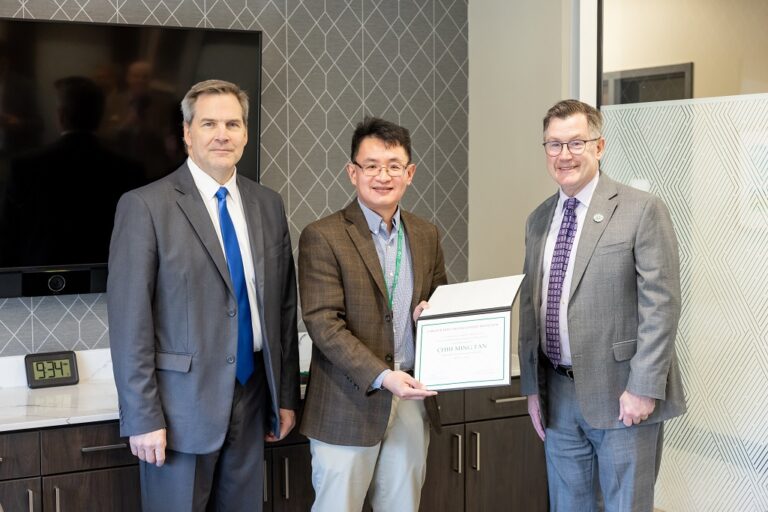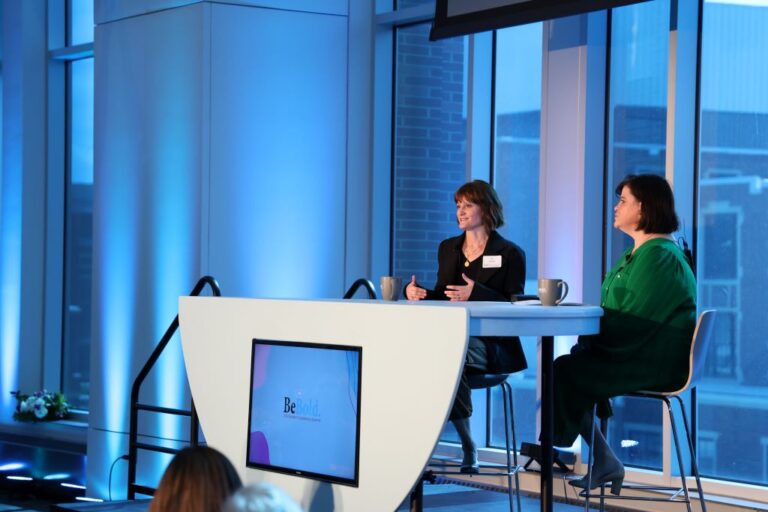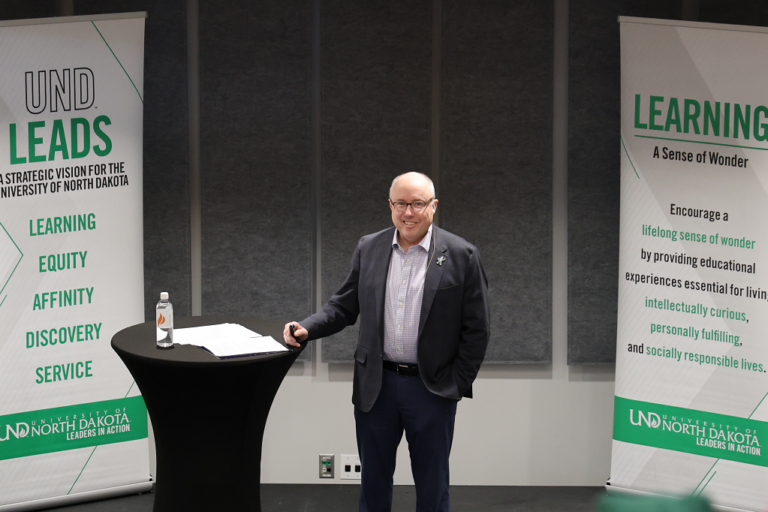Finalist: David Rosowsky
David Rosowsky, finalist for the position of President of the University of North Dakota, visited the UND campus on Nov. 14-15

David Rosowsky believes that public higher education can help drive the state forward, as well as produce great graduates.
“I’m fairly gregarious, I enjoy speaking with people, and I’m not caught up in hierarchy and organizational structure,” Rosowsky said at his public forum on campus, adding that serving the public good and working with young people are the noblest of callings.
“My values are what drive me. I’m not driven by ego, but by outcomes.”
Rosowsky said he loves university communities and is active on social media, with Twitter feeds that are comprised of a third each of students, faculty and staff, and alumni. Visible on campus, he is a people-first person who said he would come in as a “blank page” rather than say he knows what North Dakota and the University need.
“I generally set the bar a little higher and have never been disappointed,” he said. “There will be big visions, crafted by the community, made successful by doing it together.”
He is also a fan of athletics.
“Hockey is big in Vermont,” he said. “I know what it means to be a hockey school.”

Also at his public forum, Rosowsky took questions from the audience, the answers to some of which are summarized below.
- Regarding philanthropy, Rosowsky said he “cut his teeth” successfully fundraising for Texas A&M, which has the same model as UND. He is impressed by the UND Foundation, adding that philanthropy will play an increasingly important role. Along with making a compelling case to donors and friends, universities must help the state and its people understand why philanthropy is important, he said.
- About the balance between teaching, research, service and economic impact, Rosowsky said that, like UND, Vermont is a “value proposition state,” and a focus on economic development and service to the community is important. Universities can help industries transform, create jobs, attract businesses, and spin off startups that stay. “It’s one of our responsibilities as a flagship university,” he said.
- Diversity is a goal, Rosowsky said, and inclusion is what a university does to make that goal possible. At Vermont, he worked with others to successfully engage the campus in developing a framework for inclusivity and form steps to create a welcoming and diverse community. Vermont, he said, has fewer than 2 percent people of color, but the campus is between 11 and 12 percent. He hired 24 leaders, half of them women, a quarter of them people of color. One of his blog posts at Vermont, an essay on “Why Diversity Matters,” is now required reading for all new employees.
- Marketing is both an expense and a necessary investment, Rosowsky said, adding that he lobbied to create marketing and branding where there was none. “I’m a big fan of telling our story to prospective students, legislators, community leaders, alumni and donors,” he said. “If you’re not savvy in that space, you will be lost.”
- Regarding the role of University police, Rosowsky said he doesn’t know UND policies and structure, but he has worked closely with police to ensure a safe and supportive environment for students. “Students are precious charges,” he said. “Police are there to protect students and keep them safe.” He does not take underage drinking lightly, and would focus on student safety.
- In response to a question about why he is a former provost, Rosowsky said he served for six years, and his three- and five-year reviews demonstrated strong campus support. At Vermont, new presidents generally hire a new provost, and Rosowsky stepped down.
- About working with nonprofits and the community, Rosowsky said that UND is about the same size as the University of Vermont, and the cities of Grand Forks and Burlington, Vt., are similarly sized, too. He created strong town-gown relationships, along with significant new community and university partnerships that included placing students in experiential learning opportunities.
- Regarding breaking down campus silos, Rosowsky said he would create “One UND” for students. “Universities are the best in the world, but rigid,” Rosowsky said, adding he has spent time breaking down silos for the good of the organization and to create opportunity for students. “Disciplines need to talk to one another and look at the ‘space in between,’” Rosowsky said, adding that could include co-teaching courses and helping students move seamlessly between areas. At Vermont, providing incentives and resources resulted in more cross-talk between colleges, joint appointments, co-teaching courses, more interdisciplinary programs, and more research awards.
- Rosowsky has experience with incentive-based budgets, and his goals would be to increase transparency and simplicity, and to mitigate unintended consequences, such as siloing or “hoarding” credit hours. The model can’t predict enrollment decreases or unsuccessful programs, he said. “The tricky part is that some colleges become facile at different rates.” He would work to ensure every college has a chance to succeed. “Enrollment management is everyone’s business,” he said. “So is student success. If we don’t show an incoming English or History major that they can succeed, they won’t come. We need to equip graduates with life and employment skills they need.”
- Rosowsky said he is data-informed, not data-driven. “There are cultural and organizational reasons why you can’t simply make decisions on data,” he said. “You need to take a longer, more holistic view.” He added that he’s facile with data, but not reliant on it. He wants to be able to explain why that decision was made along with the expected outcome, an approach that garners more trust and support.
- A community member asked Michelle Rosowsky what’s important to her about a possible move to UND, and what her role would be as First Lady. “It’s important that the University is a good match for Dave,” she said. “I want this to be a job Dave would thrive in.” They have two children in high school, and it’s important to them that the community be open and welcoming. So far, it’s “North Dakota nice,” she said, adding that she’s loved hearing about celebrating the cultural, interfaith and campus communities. Health and wellness are important, as is a good quality of life. “I love campus life,” she said. “We have always been in university towns.” She added that they have a certified therapy dog who makes appearances during finals. Regarding living in University House, “It’s a fun prospect, and a good fit for our family,” she said.
To watch a video of Rosowsky’s public forum, visit the UND Presidential Search page.


